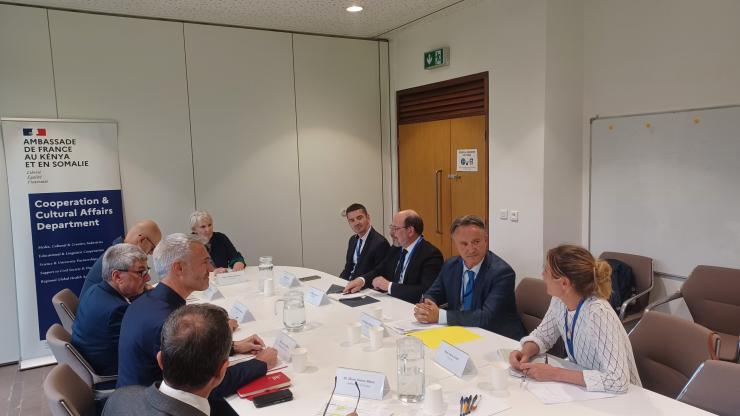INRAE strengthens its partnership work in South Africa and Kenya through French teamwork and the TSARA initiative
Published on 12 June 2025
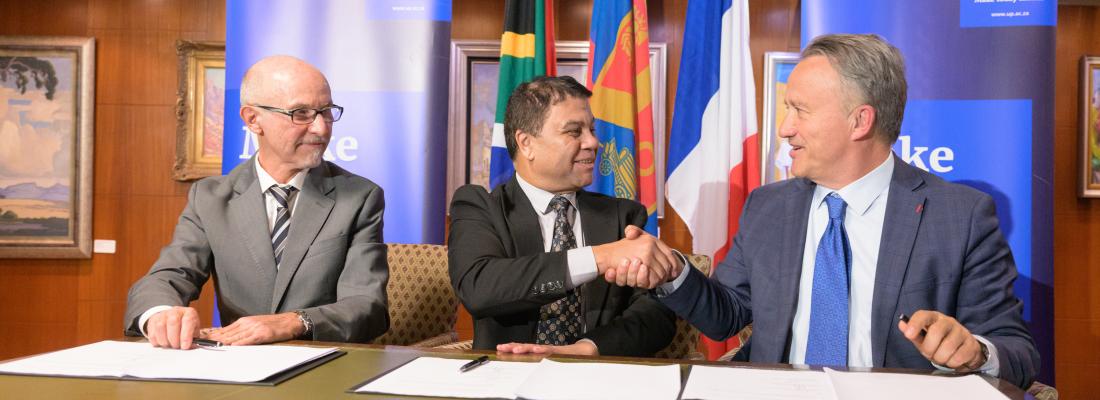
Hosted by the South African Agricultural Research Council (ARC), the meeting of the G20’s Agricultural Chief Scientists was held from 26 to 28 May in the city of Polokwane in northeastern South Africa. This annual meeting provides the opportunity for Agricultural Chief Scientists to confer with delegates from government and agricultural research bodies, discussing agricultural research systems and avenues for development in the G20 countries. Recommendations can then be issued in advance of interministerial meetings and the G20 Summit later in the year. The French contingent, led by Philippe Mauguin, Chair and CEO of INRAE, also included Thierry Caquet, Vice-President of International Policy, Joachim Huet, Science Officer for Multilateral Cooperation from INRAE’s International Relations Department, and Andrée Sontot, who represented France’s Ministry of Agriculture and Food Sovereignty.

Themes on the agenda for the meeting were the transformation of agriculture and food systems, sustainable stewardship of biodiversity, genetic and natural resources, soil health, climate-smart agriculture, agriculture-based bioeconomy and digital agriculture.
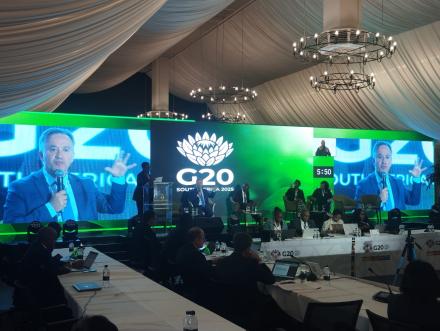
Philippe Mauguin introduced the first technical session, on the theme of the transformation of food systems. In his opening address, INRAE’s CEO took the opportunity to call on G20 members to ‘encourage the cross-sectorial integration of research on agriculture, climate, biodiversity, nutrition and society as a means to produce comprehensive knowledge with practical applications, to support international research and innovation partnerships as well as intergovernmental cooperation to transform food systems and agriculture through research and, last, to strengthen the science-policy interface, by empowering knowledge institutions to establish dynamic two-way exchange mechanisms’. He cited the particular example of the TSARA initiative as a framework with the capacity to accommodate all these objectives.
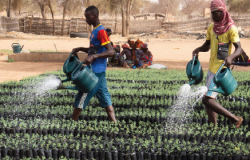
Based on co-construction between research and training institutions in Africa and Europe, the TSARA initiative aims to foster long-term partnership-based research to support the transformation of food and agricultural systems. It addresses the shared challenges facing Africa and Europe by promoting the exchange of knowledge and practices, and by developing sustainable, high-impact projects and actions in research, innovation, and training.
INRAE, CIRAD and the University of Pretoria formalise their partnership
Joining the delegation’s activities on the sidelines of the main MACS-G20 event were Aurélien Leynet, Attaché for Science and Higher Education (ACSU) at the French Embassy in South Africa and Jean-Marc Bouvet, CIRAD’s Regional Director for Southern Africa and Madagascar. INRAE was also represented by Laurent Vidal, Director of the joint CNRS-IRD-CIRAD Office in South Africa and Séverine Jaloustre, Deputy Director of F’SAGRI.
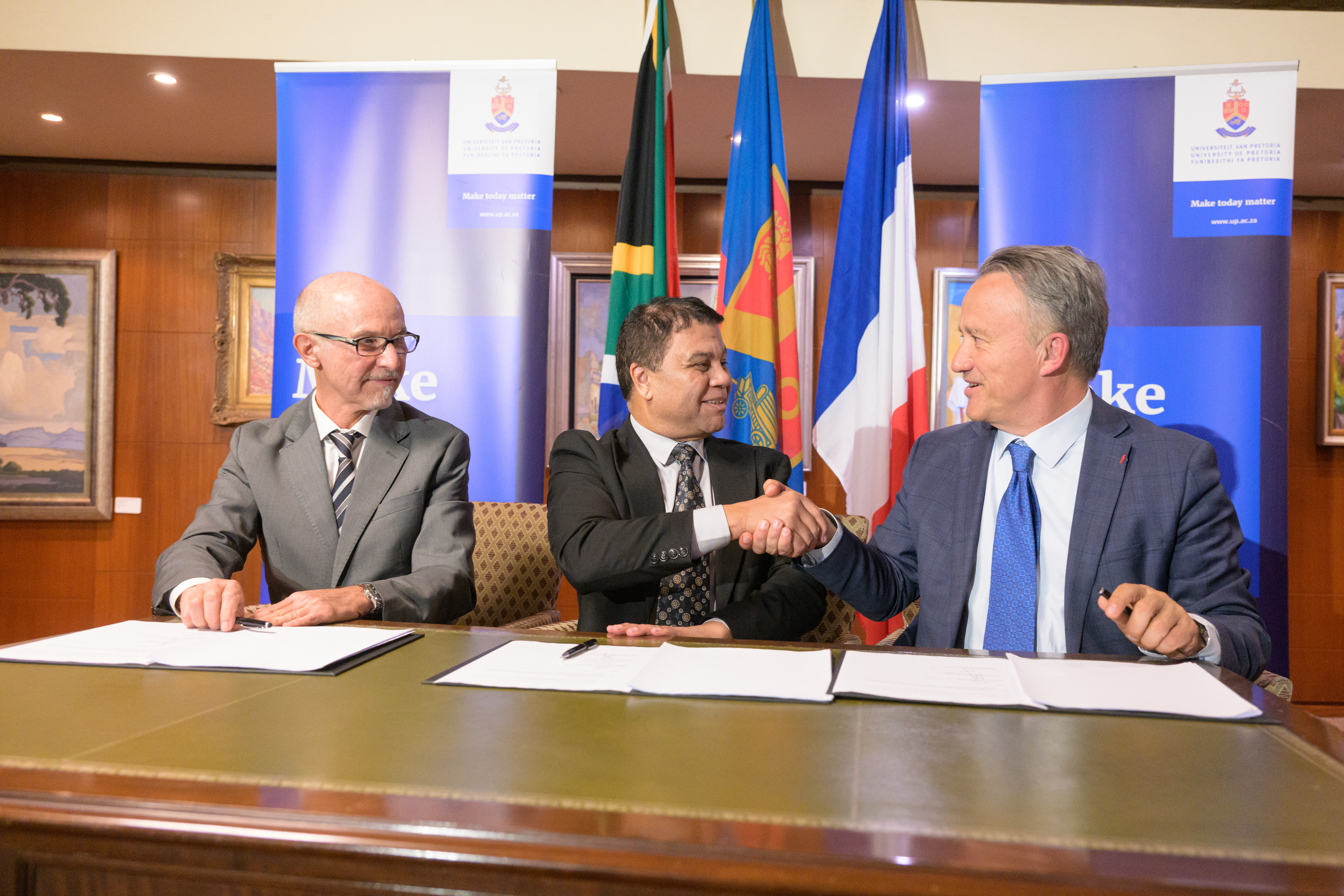
Ranked among the top universities in Africa and worldwide, the University of Pretoria (UP) has long-established links with France, particularly in agriculture, environment and health. The university has worked alongside CIRAD and INRAE for many years, as a founder member of the TSARA initiative (Transforming Food Systems and Agriculture through Research in Partnership with Africa), an active participant in the Food and Microbiota in Africa (FAMA) project, and a contributor to the One Water Vision. The French delegation’s visit to South Africa made it possible to sign a tripartite agreement between INRAE, CIRAD and UP, formalising their joint work on the sustainability of agricultural systems.
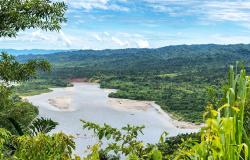
One Water Vision is an ambitious international programme aiming to improve water resource management through innovative tools and global scientific cooperation. The space missions SWOT and TRISHNA, with their unprecedentedly precise data, will play a central role in complementing existing services and enhancing our understanding of water cycles - including in the most remote regions.
A few days earlier, the INRAE delegation had participated in a discussion session on the work of F’SAGRI, covering both current actions and possible future directions at the partnership and regional levels. Set up in 2015 under a cooperation agreement signed by South Africa and France in 2013, this French-South African Agricultural Institute works to strengthen the capabilities of four ‘historically deprived universities’ - the Universities of Venda, Limpopo, Fort Hare and Zululand. It provides training for students and teachers, offers joint research programmes and supports the development of innovative businesses in the agricultural and agrifood sector. This event provided a platform to introduce INRAE and the TSARA project to the forty or so delegates in attendance and to consider potential synergies for the future.
Contacts with the Kenyan research ecosystem
The second part of the trip took the INRAE group to Nairobi, Kenya, where they met a number of key players in the Kenyan research and agricultural training ecosystem, including representatives from the International Centre of Insect Physiology and Ecology (ICIPE), the Kenya Agricultural and Livestock Research Organization (KALRO), the University of Nairobi and CGIAR’s International Livestock Research Institute (CGIAR ILRI). For this leg of the trip, the core INRAE contingent from South Africa were joined by Lauric Cécillon, Deputy Head of Cooperation (COCAC) and Attaché for Science and Higher Education (ACSU) at the French Embassy in Kenya, Alexandre Caron, CIRAD’s Regional IPBES Platform Coordinator, and Marie Schill, who runs the TSARA project at INRAE.
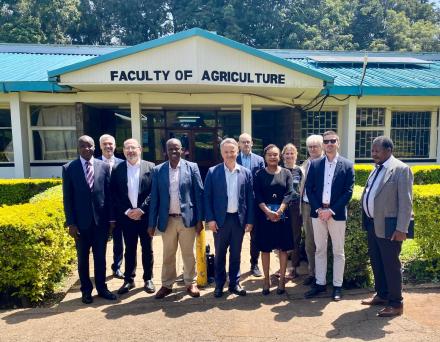
The object of this Kenyan visit, jointly organised with CIRAD and the IRD, was to introduce new Kenyan partners to TSARA and consolidate the involvement of existing members, to identify shared projects that might be developed within the framework of the initiative, to lay the groundwork for TSARA’s fourth General Assembly (to be held in 2026 in Nairobi), and to prepare for the next African co-presidency of TSARA. ICIPE’s Director General, Dr Abdou Tenkouano, will take on this role in 2026.
Discussions were fruitful, reflecting the desire of all involved to strengthen partnerships and joint actions. It was agreed that TSARA has proved to be an appropriate working framework for the development of collaboration, operating a co-constructive approach that brings together themes, mechanisms and partnerships at regional and continental scales. It has strengthened Kenya’s position, creating the conditions for concerted French action (with the involvement of CIRAD, INRAE, IRD, CNRS and IFRA and the possible establishment of a French research centre in Nairobi).
The topics of shared interest were:
- One Health, local public health areas, agroecology, plant and animal health
- soil (conservation and restoration, carbon sequestration, organic fertilisers)
- farming (genetics and local breeds, feed, health, zoonosis, AMR, GHG mitigation)
- nutritional health and the microbiota
- agriculture in arid zones and water management
- IT (data management, integrated data accessible to all, digital technologies and climate justice)
- strengthening capacity, training, information and mobility, for students, scientists and also farmers
- science-policy interface and foresight studies.
It was agreed that joint projects would be created, making use of the range of support mechanisms available within national, European and international organisations, and exploiting the many levers already in existence, for exemple:
- TSARA’s various thematic task forces; the dP TRACE consortium - Transforming Agriculture for Animal, Crop and Ecosystem Health -currently under co-construction
- the international PREZODE, OFVi and OWVi initiatives
- initiatives supported by the French government such as INRAE’s Agroecology an Digital research programme and the ANR’s Managing Environmental Hotspots and Transmission of AMR
- INRAE’s AMI project for the TSARA MIPClan-Living Lab, and the STAR-IDAZ international consortium
Significant events in 2026 (Africa-France Summit, TSARA’s fourth General Assembly and Kenyan co-presidency) could act as particular drivers for collective action. The institutions present at the meeting undertook to organise exchanges between scientists in the near future, and to embark on concrete collaborations on the shared themes. KALRO, the University of Nairobi and the ILRI are considering membership of TSARA.
Elsewhere, a meeting was organised by the French Embassy with the UNEP (United Nations Environment Programme) Chief Scientist, who is based in Nairobi. This allowed the foundations to be laid for a future five-party framework agreement involving INRAE, CIRAD, IRD, CNRS and UNEP. Among the identified areas for collaboration were soil health, soil-based carbon sinks, AMR, satellite remote sensing, the One Health approach and contributions to foresight studies, collective scientific assessments and support for public policy.
